
Intel Core i7-13700K Benchmark, Test and specs
Last updated:
The Intel Core i7-13700K has 16 cores with 24 threads and is based on the 13. gen of the Intel Core i7 series. The processor uses a mainboard with the LGA 1700 socket and was released in Q4/2022. The Intel Core i7-13700K scores 2,065 points in the Geekbench 5 single-core benchmark. In the Geekbench 5 multi-core benchmark, the result is 18,402 points.

| Name: | Intel Core i7-13700K |
|---|---|
| Family: | Intel Core i7 (298) |
| CPU group: | Intel Core i 13000 (17) |
| Architecture: | Raptor Lake S |
| Segment: | Desktop / Server |
| Generation: | 13 |
| Predecessor: | Intel Core i7-12700K |
| Successor: | Intel Core i7-14700K |
CPU Cores and Base Frequency
The Intel Core i7-13700K has 16 CPU cores and can calculate 24 threads in parallel. The clock frequency of the Intel Core i7-13700K is 3.40 GHz (5.40 GHz). The number of CPU cores greatly affects the speed of the processor and is an important performance indicator.
| CPU Cores / Threads: | 16 / 24 |
|---|---|
| Core architecture: | hybrid (big.LITTLE) |
| A-Core: | 8x Raptor Cove |
| B-Core: | 8x Gracemont |
| Hyperthreading / SMT: | Yes |
|---|---|
| Overclocking: | Yes |
| A-Core Frequency: | 3.40 GHz (5.40 GHz) |
| B-Core Frequency: | 2.50 GHz (4.20 GHz) |
Internal Graphics
The Intel Core i7-13700K has integrated graphics, called iGPU for short. Specifically, the Intel Core i7-13700K uses the Intel UHD Graphics 770, which has 256 texture shaders and 32 execution units. The iGPU uses the system's main memory as graphics memory and sits on the processor's die.
| GPU name: | Intel UHD Graphics 770 |
|---|---|
| GPU frequency: | 0.30 GHz |
| GPU (Turbo): | 1.60 GHz |
| Compute units: | 32 |
| Shader: | 256 |
| Hardware Raytracing: | No |
| Release date: | Q4/2021 |
| Max. displays: | 3 |
|---|---|
| Generation: | 11 |
| Direct X: | 12 |
| Technology: | 10 nm |
| Max. GPU Memory: | 64 GB |
| Frame Generation: | No |
Hardware codec support
A photo or video codec that is accelerated in hardware can greatly accelerate the working speed of a processor and extend the battery life of notebooks or smartphones when playing videos.
| h265 / HEVC (8 bit): | Decode / Encode |
|---|---|
| h265 / HEVC (10 bit): | Decode / Encode |
| h264: | Decode / Encode |
| VP8: | Decode / Encode |
| VP9: | Decode / Encode |
| AV1: | Decode |
|---|---|
| AVC: | Decode / Encode |
| VC-1: | Decode |
| JPEG: | Decode / Encode |
Memory & PCIeThe processor can use up to 192 GB memory in 2 (Dual Channel) memory channels. The maximum memory bandwidth is 89.6 GB/s. The memory type as well as the amount of memory can greatly affect the speed of the system. |
|
| Memory type: | Memory bandwidth: |
|---|---|
| DDR5-5600 DDR4-3200 | 89.6 GB/s 51.2 GB/s |
| Max. Memory: | 192 GB |
| Memory channels: | 2 (Dual Channel) |
| ECC: | Yes |
| PCIe: | 5.0 x 20 |
| PCIe Bandwidth: | 78.8 GB/s |
Thermal ManagementThe thermal design power (TDP for short) of the processor is 125 W. The TDP specifies the necessary cooling solution that is required to cool the processor sufficiently. The TDP usually gives a rough idea of the actual power consumption of the CPU. |
|
|---|---|
| TDP (PL1 / PBP): | 125 W |
| TDP (PL2): | 253 W |
| TDP up: | -- |
| TDP down: | -- |
| Tjunction max.: | 100 °C |
Technical details
The Intel Core i7-13700K is made in 10 nm. The smaller the manufacturing process of a CPU, the more modern and energy-efficient it is. Overall, the processor has 54.00 MB cache. A large cache can greatly speed up the processor's speed in some cases such as games.
| Technology: | 10 nm |
|---|---|
| Chip design: | Monolithic |
| Socket: | LGA 1700 |
| L2-Cache: | 24.00 MB |
| L3-Cache: | 30.00 MB |
| AES-NI: | Yes |
| Operating systems: | Windows 10, Windows 11, Linux |
| Virtualization: | VT-x, VT-x EPT, VT-d |
|---|---|
| Instruction set (ISA): | x86-64 (64 bit) |
| ISA extensions: | SSE4.1, SSE4.2, AVX2, AVX2+ |
| Release date: | Q4/2022 |
| Release price: | 409 $ |
| Part Number: | -- |
| Documents: | Technical data sheet |
Rate this processor
Benchmark results

The benchmark results for the Intel Core i7-13700K have been carefully checked by us. We only publish benchmark results that have been created by us or that have been submitted by a visitor and then checked by a team member. All results are based on and fullfill our benchmark guidelines.
Screenshots:
Screenshots:
- Geekbench 5.4.1 on ASUS ROG MAXIMUS Z690 HERO (32 GB RAM), Windows 10 Pro [Intel Core i7-13700KF]
- Geekbench 6 (32 GB DDR5-4800), Windows 11 Home
- Cinebench R23 on ASUS ROG STRIX Z790A DDR5 (32 GB DDR5-6000), Windows 10 [Intel Core i7-13700KF]
Cinebench 2024 (Single-Core)
The Cinebench 2024 benchmark is based on the Redshift rendering engine, which is also used in Maxon's 3D program Cinema 4D. The benchmark runs are each 10 minutes long to test whether the processor is limited by its heat generation.

|
Intel Core i9-13900K
24C 32T @ 5.80 GHz |
||

|
Intel Core i7-14700K
20C 28T @ 5.60 GHz |
||

|
Intel Core i7-14700KF
20C 28T @ 5.60 GHz |
||
|
|
Intel Core i7-13700K
16C 24T @ 5.40 GHz |
||

|
Apple M2 Ultra (76-GPU)
24C 24T @ 3.50 GHz |
||

|
Apple M2 Ultra (60-GPU)
24C 24T @ 3.50 GHz |
||

|
Intel Core i7-13700KF
16C 24T @ 5.40 GHz |
||
Cinebench 2024 (Multi-Core)
The Multi-Core test of the Cinebench 2024 benchmark uses all cpu cores to render using the Redshift rendering engine, which is also used in Maxons Cinema 4D. The benchmark run is 10 minutes long to test whether the processor is limited by its heat generation.

|
Intel Core i9-13900
24C 32T @ 5.60 GHz |
||

|
Intel Core i9-13900F
24C 32T @ 5.60 GHz |
||

|
Apple M3 Max (16-CPU 40-GPU)
16C 16T @ 4.06 GHz |
||
|
|
Intel Core i7-13700K
16C 24T @ 5.40 GHz |
||

|
Intel Core i7-13700KF
16C 24T @ 5.40 GHz |
||

|
AMD Ryzen 9 7900X3D
12C 24T @ 5.60 GHz |
||

|
Intel Core i9-12900K
16C 24T @ 5.20 GHz |
||
Cinebench R23 (Single-Core)
Cinebench R23 is the successor of Cinebench R20 and is also based on the Cinema 4 Suite. Cinema 4 is a worldwide used software to create 3D forms. The single-core test only uses one CPU core, the amount of cores or hyperthreading ability doesn't count.

|
Intel Core i9-13900
24C 32T @ 5.60 GHz |
||

|
Intel Core i9-13900F
24C 32T @ 5.60 GHz |
||

|
Intel Core i9-13980HX
24C 32T @ 5.60 GHz |
||
|
|
Intel Core i7-13700K
16C 24T @ 5.40 GHz |
||

|
Intel Core i7-13700KF
16C 24T @ 5.40 GHz |
||

|
Intel Core i7-13700F
16C 24T @ 5.20 GHz |
||

|
Intel Core i7-13700
16C 24T @ 5.20 GHz |
||
Cinebench R23 (Multi-Core)
Cinebench R23 is the successor of Cinebench R20 and is also based on the Cinema 4 Suite. Cinema 4 is a worldwide used software to create 3D forms. The multi-core test involves all CPU cores and taks a big advantage of hyperthreading.

|
Intel Core i9-13950HX
24C 32T @ 4.80 GHz |
||

|
Intel Core i9-13980HX
24C 32T @ 4.90 GHz |
||

|
Intel Xeon W-3175X
28C 56T @ 3.80 GHz |
||
|
|
Intel Core i7-13700K
16C 24T @ 5.30 GHz |
||

|
Intel Core i7-13700KF
16C 24T @ 5.30 GHz |
||

|
Intel Core i9-13900HX
24C 32T @ 4.60 GHz |
||

|
AMD Ryzen 9 7900X
12C 24T @ 5.40 GHz |
||
Geekbench 5, 64bit (Single-Core)
Geekbench 5 is a cross plattform benchmark that heavily uses the systems memory. A fast memory will push the result a lot. The single-core test only uses one CPU core, the amount of cores or hyperthreading ability doesn't count.
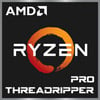
|
AMD Ryzen Threadripper PRO 7995WX
96C 192T @ 5.10 GHz |
||

|
AMD Ryzen Threadripper PRO 7955WX
16C 32T @ 5.30 GHz |
||

|
Intel Core i9-12900KS
16C 24T @ 5.50 GHz |
||
|
|
Intel Core i7-13700K
16C 24T @ 5.40 GHz |
||

|
Intel Core i7-13700KF
16C 24T @ 5.40 GHz |
||

|
Intel Core i9-13900HX
24C 32T @ 5.40 GHz |
||

|
AMD Ryzen 9 7845HX
12C 24T @ 5.20 GHz |
||
Geekbench 5, 64bit (Multi-Core)
Geekbench 5 is a cross plattform benchmark that heavily uses the systems memory. A fast memory will push the result a lot. The multi-core test involves all CPU cores and taks a big advantage of hyperthreading.

|
Intel Xeon Platinum 8260
24C 48T @ 2.40 GHz |
||

|
Intel Xeon Silver 4316
20C 40T @ 2.30 GHz |
||

|
AMD EPYC 7313
16C 32T @ 3.40 GHz |
||
|
|
Intel Core i7-13700K
16C 24T @ 5.30 GHz |
||

|
Intel Core i7-13700KF
16C 24T @ 5.30 GHz |
||

|
Intel Xeon Gold 6212U
24C 48T @ 2.40 GHz |
||

|
Intel Core i7-14700HX
20C 28T @ 2.10 GHz |
||
Geekbench 6 (Single-Core)
Geekbench 6 is a benchmark for modern computers, notebooks and smartphones. What is new is an optimized utilization of newer CPU architectures, e.g. based on the big.LITTLE concept and combining CPU cores of different sizes. The single-core benchmark only evaluates the performance of the fastest CPU core, the number of CPU cores in a processor is irrelevant here.

|
AMD Ryzen 9 7900
12C 24T @ 5.40 GHz |
||

|
Intel Core i5-14600K
14C 20T @ 5.30 GHz |
||

|
Intel Core i5-14600KF
14C 20T @ 5.30 GHz |
||
|
|
Intel Core i7-13700K
16C 24T @ 5.40 GHz |
||

|
Intel Core i7-13700KF
16C 24T @ 5.40 GHz |
||

|
Intel Core i5-14600
14C 20T @ 5.20 GHz |
||

|
Intel Core i9-13900F
24C 32T @ 5.60 GHz |
||
Geekbench 6 (Multi-Core)
Geekbench 6 is a benchmark for modern computers, notebooks and smartphones. What is new is an optimized utilization of newer CPU architectures, e.g. based on the big.LITTLE concept and combining CPU cores of different sizes. The multi-core benchmark evaluates the performance of all of the processor's CPU cores. Virtual thread improvements such as AMD SMT or Intel's Hyper-Threading have a positive impact on the benchmark result.

|
AMD EPYC 9254
24C 48T @ 3.90 GHz |
||

|
AMD Ryzen 9 7900X3D
12C 24T @ 5.20 GHz |
||

|
Intel Xeon W-3175X
28C 56T @ 3.80 GHz |
||
|
|
Intel Core i7-13700K
16C 24T @ 5.30 GHz |
||

|
Intel Core i7-13700KF
16C 24T @ 5.30 GHz |
||

|
AMD Ryzen Threadripper PRO 5955WX
16C 32T @ 4.20 GHz |
||

|
Intel Core i5-14600KF
14C 20T @ 5.30 GHz |
||
Cinebench R20 (Single-Core)
Cinebench R20 is the successor of Cinebench R15 and is also based on the Cinema 4 Suite. Cinema 4 is a worldwide used software to create 3D forms. The single-core test only uses one CPU core, the amount of cores or hyperthreading ability doesn't count.

|
Intel Core i9-13900K
24C 32T @ 5.80 GHz |
||

|
Intel Core i9-13900
24C 32T @ 5.60 GHz |
||

|
Intel Core i9-13900F
24C 32T @ 5.60 GHz |
||
|
|
Intel Core i7-13700K
16C 24T @ 5.40 GHz |
||

|
Intel Core i7-13700KF
16C 24T @ 5.40 GHz |
||

|
Intel Core i9-13950HX
24C 32T @ 5.50 GHz |
||

|
Intel Core i9-12900KS
16C 24T @ 5.50 GHz |
||
Cinebench R20 (Multi-Core)
Cinebench R20 is the successor of Cinebench R15 and is also based on the Cinema 4 Suite. Cinema 4 is a worldwide used software to create 3D forms. The multi-core test involves all CPU cores and taks a big advantage of hyperthreading.

|
Intel Core i9-13900
24C 32T @ 5.30 GHz |
||

|
Intel Core i9-13900F
24C 32T @ 5.30 GHz |
||

|
Intel Core i9-13950HX
24C 32T @ 4.80 GHz |
||
|
|
Intel Core i7-13700K
16C 24T @ 5.30 GHz |
||

|
Intel Core i7-13700KF
16C 24T @ 5.30 GHz |
||

|
AMD Ryzen 9 7900X
12C 24T @ 5.40 GHz |
||

|
AMD Ryzen Threadripper 2990WX
32C 64T @ 3.00 GHz |
||
iGPU - FP32 Performance (Single-precision GFLOPS)
The theoretical computing performance of the internal graphics unit of the processor with simple accuracy (32 bit) in GFLOPS. GFLOPS indicates how many billion floating point operations the iGPU can perform per second.

|
Intel Core i7-4950HQ
Intel Iris Pro Graphics 5200 @ 1.30 GHz |
||

|
Intel Core i7-4960HQ
Intel Iris Pro Graphics 5200 @ 1.30 GHz |
||

|
Intel Core i7-4980HQ
Intel Iris Pro Graphics 5200 @ 1.30 GHz |
||
|
|
Intel Core i7-13700K
Intel UHD Graphics 770 @ 1.60 GHz |
||

|
Intel Core i7-14700T
Intel UHD Graphics 770 @ 1.60 GHz |
||

|
Intel Core i7-14700
Intel UHD Graphics 770 @ 1.60 GHz |
||

|
Intel Core i7-14700K
Intel UHD Graphics 770 @ 1.60 GHz |
||
Blender 3.1 Benchmark
In the Blender Benchmark 3.1, the scenes "monster", "junkshop" and "classroom" are rendered and the time required by the system is measured. In our benchmark we test the CPU and not the graphics card. Blender 3.1 was presented as a standalone version in March 2022.

|
AMD Ryzen Threadripper 2990WX
32C 64T @ 3.00 GHz |
||

|
AMD Ryzen 9 7900X
12C 24T @ 5.40 GHz |
||

|
AMD Ryzen 9 5950X
16C 32T @ 4.20 GHz |
||
|
|
Intel Core i7-13700K
16C 24T @ 5.30 GHz |
||

|
Intel Core i7-13700KF
16C 24T @ 5.30 GHz |
||

|
AMD Ryzen Threadripper 2970WX
24C 48T @ 3.00 GHz |
||

|
Intel Core i9-12900KS
16C 24T @ 5.20 GHz |
||
Estimated results for PassMark CPU Mark
Some of the CPUs listed below have been benchmarked by CPU-monkey. However the majority of CPUs have not been tested and the results have been estimated by a CPU-monkey’s secret proprietary formula. As such they do not accurately reflect the actual Passmark CPU mark values and are not endorsed by PassMark Software Pty Ltd.

|
Intel Xeon W-3345
24C 48T @ 3.70 GHz |
||

|
AMD EPYC 7402
24C 48T @ 3.20 GHz |
||

|
Intel Xeon Gold 6342
24C 48T @ 3.20 GHz |
||
|
|
Intel Core i7-13700K
16C 24T @ 5.30 GHz |
||

|
Intel Core i7-13700KF
16C 24T @ 5.30 GHz |
||

|
AMD Ryzen 9 7845HX
12C 24T @ 3.00 GHz |
||

|
Intel Core i9-13900HX
24C 32T @ 4.60 GHz |
||
Cinebench R15 (Single-Core)
Cinebench R15 is the successor of Cinebench 11.5 and is also based on the Cinema 4 Suite. Cinema 4 is a worldwide used software to create 3D forms. The single-core test only uses one CPU core, the amount of cores or hyperthreading ability doesn't count.

|
AMD Ryzen 9 7900
12C 24T @ 5.40 GHz |
||

|
AMD Ryzen 5 7600X
6C 12T @ 5.30 GHz |
||

|
AMD Ryzen 9 7945HX
16C 32T @ 5.40 GHz |
||
|
|
Intel Core i7-13700K
16C 24T @ 5.40 GHz |
||

|
AMD Ryzen 9 7945HX3D
16C 32T @ 5.40 GHz |
||

|
Intel Core i7-13700KF
16C 24T @ 5.40 GHz |
||

|
Intel Core i9-13950HX
24C 32T @ 5.50 GHz |
||
Cinebench R15 (Multi-Core)
Cinebench R15 is the successor of Cinebench 11.5 and is also based on the Cinema 4 Suite. Cinema 4 is a worldwide used software to create 3D forms. The multi-core test involves all CPU cores and taks a big advantage of hyperthreading.

|
AMD Ryzen 9 7900X
12C 24T @ 5.40 GHz |
||

|
AMD Ryzen 9 7900
12C 24T @ 4.70 GHz |
||
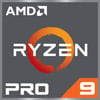
|
AMD Ryzen 9 PRO 7945
12C 24T @ 4.70 GHz |
||
|
|
Intel Core i7-13700K
16C 24T @ 5.30 GHz |
||

|
Intel Core i7-13700KF
16C 24T @ 5.30 GHz |
||

|
AMD Ryzen 9 5950X
16C 32T @ 4.20 GHz |
||

|
Intel Xeon Platinum 8180
28C 56T @ 2.80 GHz |
||
CPU performance per watt (efficiency)
Efficiency of the processor under full load in the Cinebench R23 (multi-core) benchmark. The benchmark result is divided by the average energy required (CPU package power in watts). The higher the value, the more efficient the CPU is under full load.

|
AMD Ryzen 5 5600X
10,988 CB R23 MC @ 76 W |
||

|
Intel Core i5-13500
21,216 CB R23 MC @ 147 W |
||

|
Intel Core i5-13500HX
18,560 CB R23 MC @ 129 W |
||
|
|
Intel Core i7-13700K
31,062 CB R23 MC @ 220 W |
||

|
Intel Core i7-13700KF
31,062 CB R23 MC @ 220 W |
||

|
Intel Core i5-13600K
24,125 CB R23 MC @ 174 W |
||

|
Intel Core i5-13600KF
24,125 CB R23 MC @ 174 W |
||
Benchmarks

Cinebench 2024 (SC)
272 entries
272 entries

Cinebench 2024 (MC)
271 entries
271 entries

Cinebench R23 (SC)
586 entries
586 entries

Cinebench R23 (MC)
565 entries
565 entries

Geekbench 5 (SC)
2,488 entries
2,488 entries

Geekbench 5 (MC)
2,461 entries
2,461 entries

Geekbench 6 (SC)
1,755 entries
1,755 entries

Geekbench 6 (MC)
1,703 entries
1,703 entries

Cinebench R20 (SC)
656 entries
656 entries

Cinebench R20 (MC)
604 entries
604 entries

FP32 SP (iGPU)
2,039 entries
2,039 entries

3DMark Timespy (iGPU)
516 entries
516 entries

Blender 3.1 Benchmark
212 entries
212 entries

PassMark CPU-Mark
2,392 entries
2,392 entries

V-Ray CPU-Render
249 entries
249 entries

Cinebench R15 (SC)
1,106 entries
1,106 entries

Cinebench R15 (MC)
1,101 entries
1,101 entries

CPU performance per watt (efficiency)
109 entries
109 entries
News and articles for the Intel Core i7-13700K
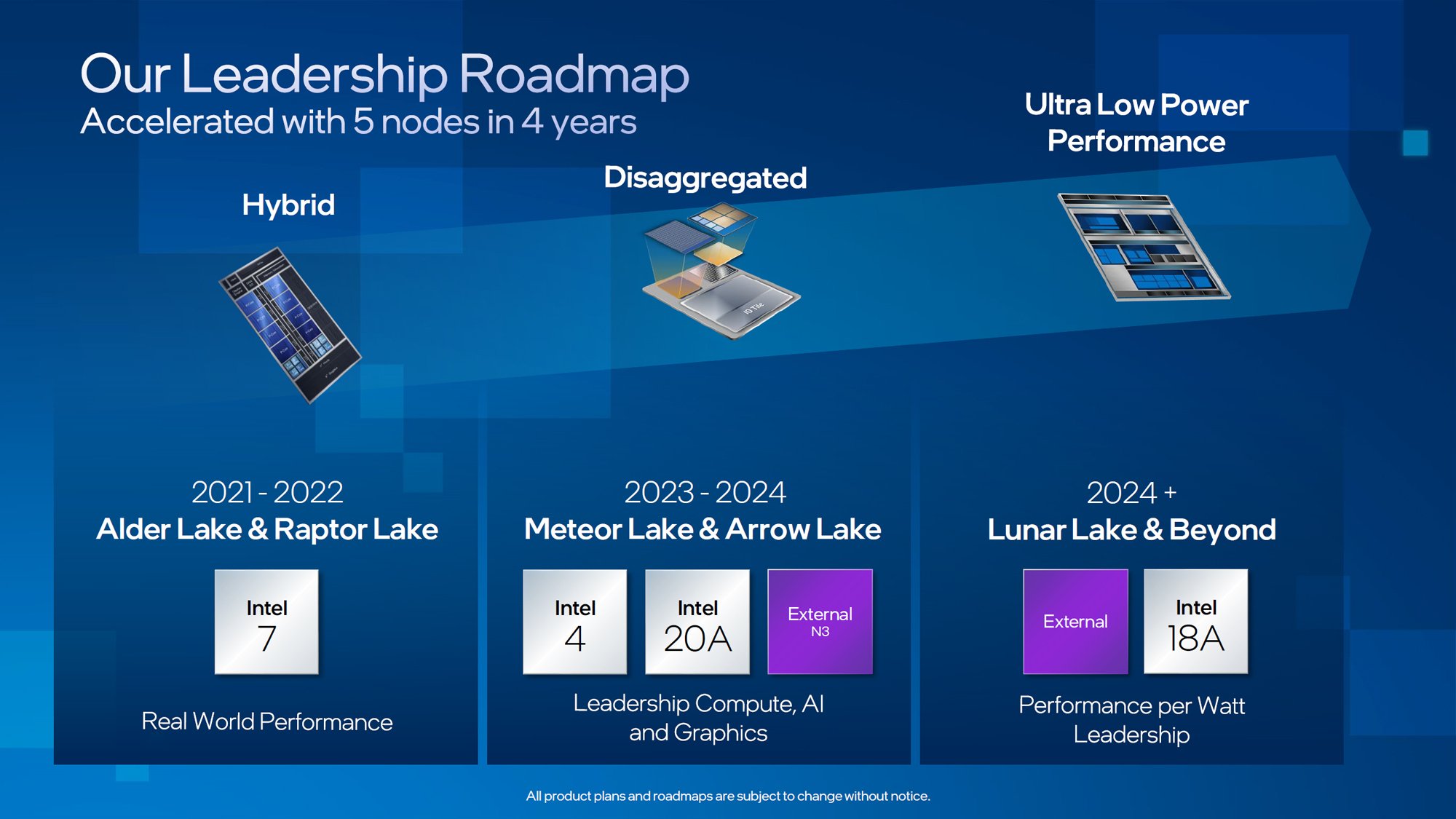
AMD Ryzen 7000 and Intel Core i 13 Gen at almost 6 GHz clock speed
Posted by Stefan on 2022-08-29
In September, both AMD and Intel are introducing their new mainstream desktop processors. It doesn't seem to have been as close as this year for a long time, leaked benchmarks of the new top models from AMD and Intel point to a head-to-head race.
This year even the 6 GHz clock limit is almost within reach. With a good cooler and some overclocking it should be possible to reach the 6 GHz limit. But even in series production, the manufacturers try to realize the highest possible clock frequency, at least on one core.
This year even the 6 GHz clock limit is almost within reach. With a good cooler and some overclocking it should be possible to reach the 6 GHz limit. But even in series production, the manufacturers try to realize the highest possible clock frequency, at least on one core.
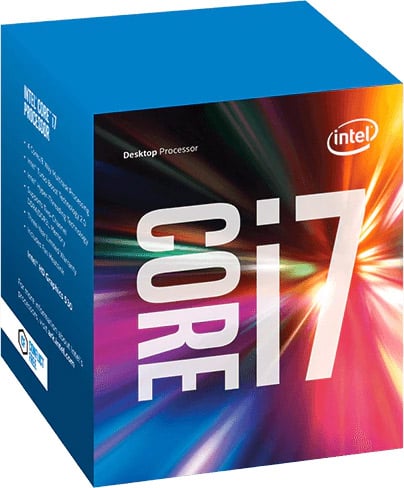
First Geekbench 5 benchmark of the Intel Core i7-13700K
Posted by Stefan on 2022-07-26
Last week we already reported on the new Intel Core i7-13700K processor from Intel, which is expected in autumn 2022. With 8+8 CPU cores (24 threads), the Intel Core i7-13700K should have the same configuration as last year's Intel Core i9-12900K. With this, Intel wants to finally clear AMD's lead in multi-core performance, which has existed for several years.
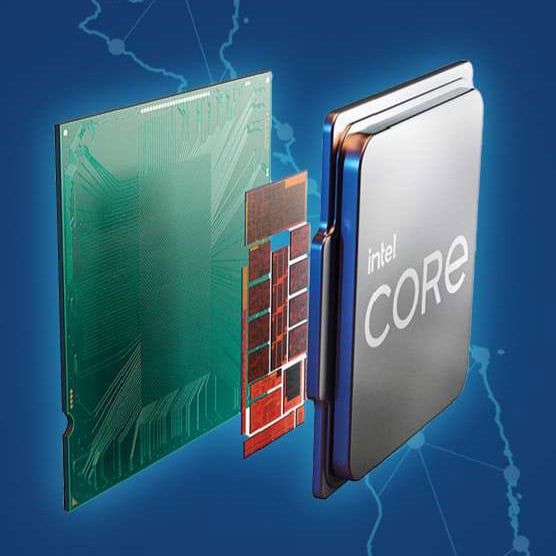
Intel Core i7-13700K could debut with 16 cores and 24 threads
Posted by Stefan on 2022-07-20
According to an internal Intel slide published at the end of last year, the Intel Core i7-13700K could have 8+8, i.e. 16 CPU cores that provide 24 threads. The interesting thing about the slide is that it was recently confirmed by newer leaks of the Intel Core i9-13900K and the Intel Core i5-13600K as the number of cores and also the size of the cache matches with recently published CPU-Z screenshots of alleged development models.
Description of the processor
The Intel Core i7-13700K is a 16-core processor that can process 24 threads simultaneously. It uses a hybrid core design that combines 8 fast P-cores (Raptor Cove) with 8 slower and more efficient E-cores (Gracemont). While the Rator-Cove cores offer a small step up from their predecessor, the E-cores carry over from the previous generation with no design changes.The clock frequency of the P cores is 3.4 GHz (up to 5.4 GHz in turbo mode) while the E cores clock at 2.5 GHz (up to 4.2 GHz maximum in turbo mode). The P cores support Intels Hyperthreading technology and can process 2 threads per CPU core. The E cores can only process 1 thread per core at a time.
Like all K-CPUs from Intel, the Intel Core i7-13700K can be further overclocked. However, this requires a very good cooling solution, since the standard CPUs can already absorb considerable amounts of energy, which increase significantly with overclocking.
Nothing has changed in the integrated graphics compared to the predecessor either. Intel continues to rely on the Intel UHD Graphics 770, which is sufficient to display an image on one or more monitors, even in high resolutions. The iGPU is not suitable for gaming. In return, all modern video codecs, including AV1, can be played back smoothly with the Intel UHD Graphics 770.
Up to 128 GB of RAM in two modules (max. 4 memory banks) is supported, with officially up to DDR5-5600 being supported. Faster working memory modules can also be easily connected to the system via an Intel XMP 3.0 profile.
The processor provides up to 20 PCIe 5.0 lines. This is enough, for example, to connect a graphics card with 1x16 lines and a fast NVMe M.2 SSD.
Popular comparisons
back to index





